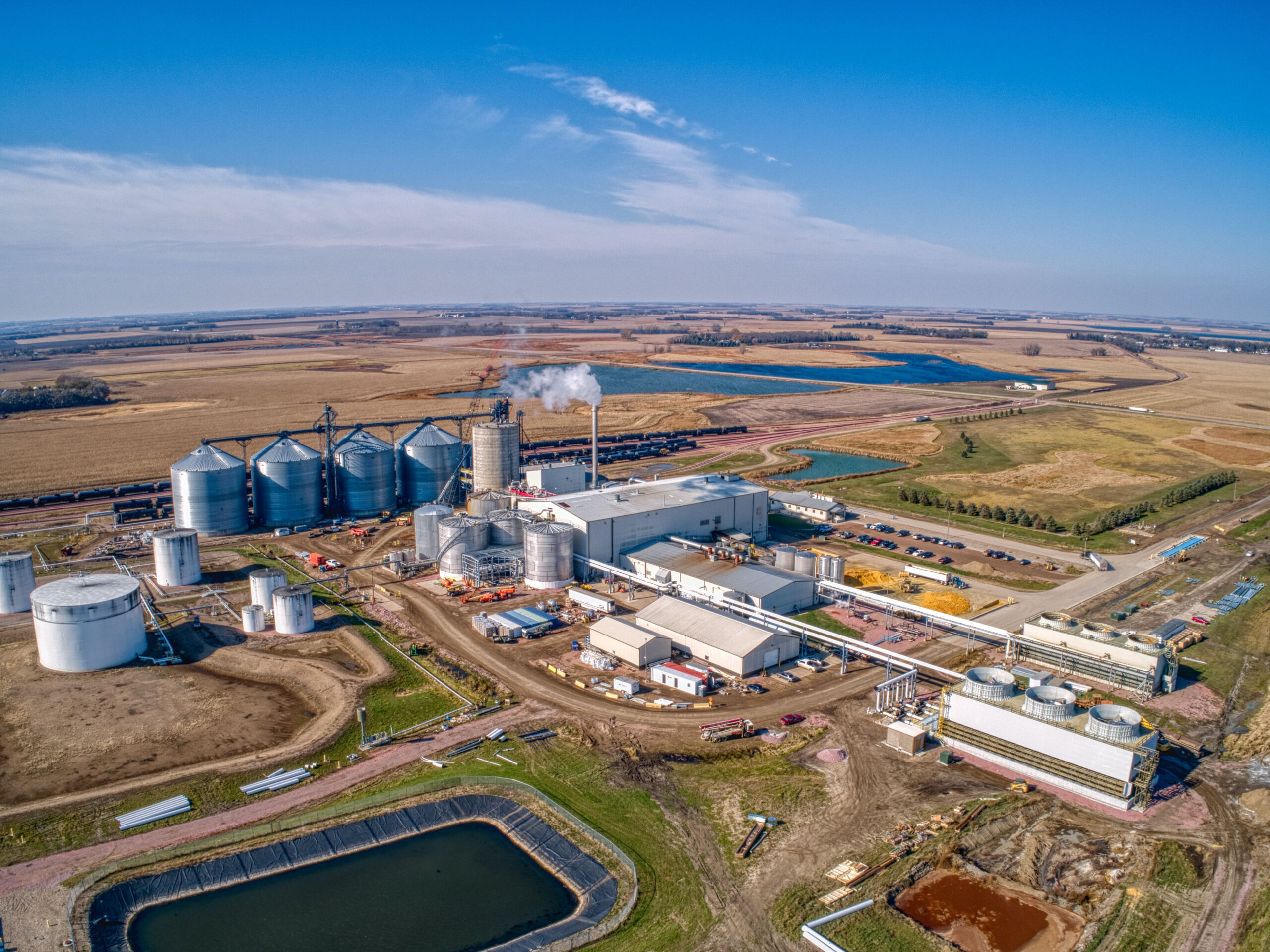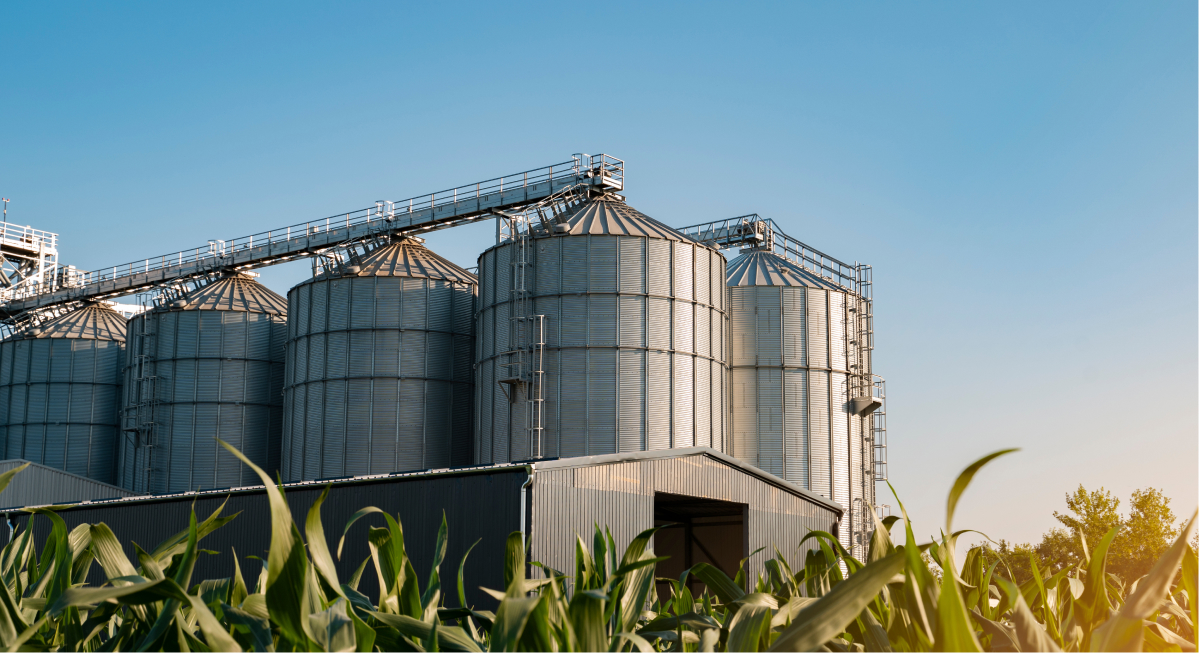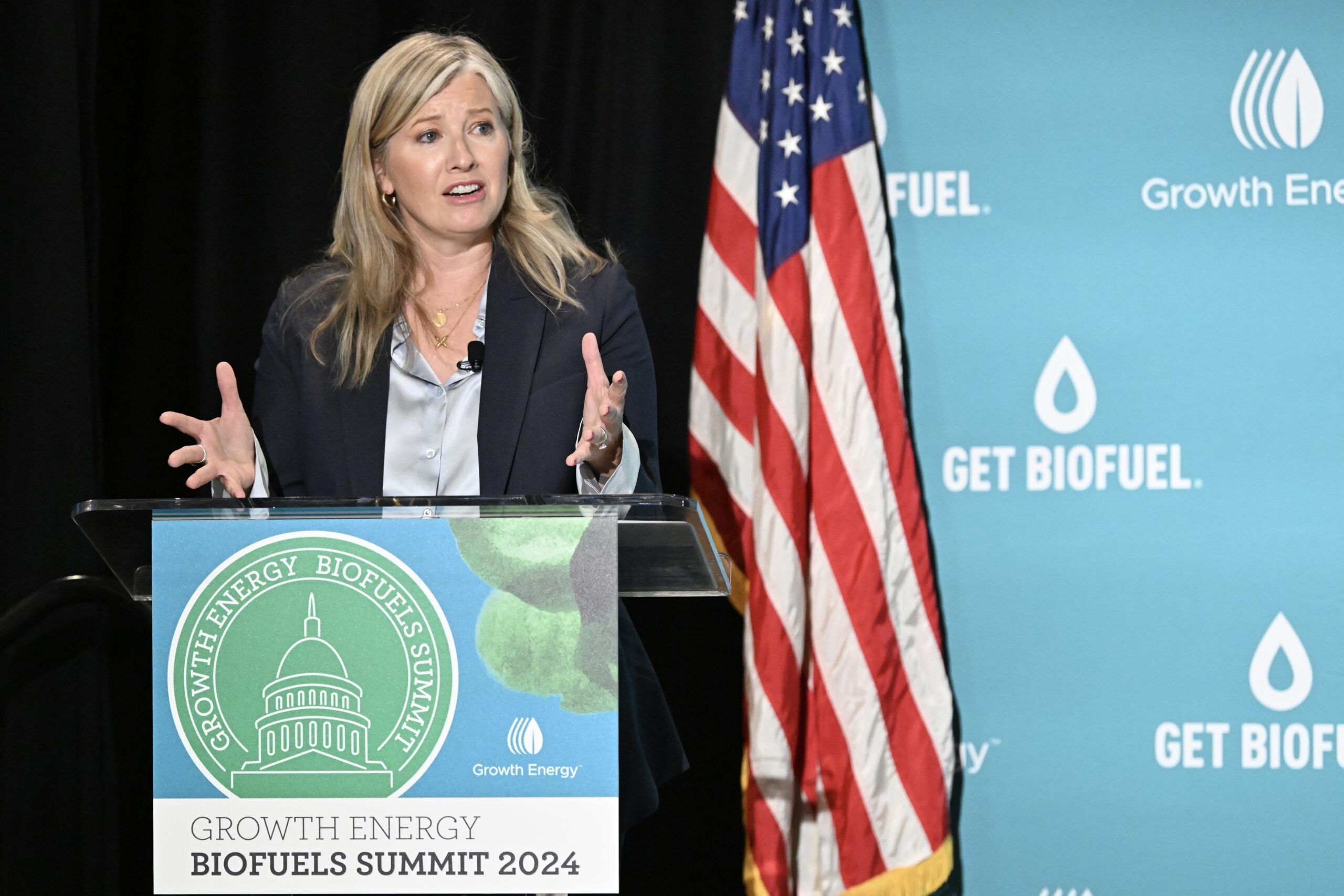
Policy Priorities
Fueling sustainable bioeconomic progress.
With smart policymaking, the bioeconomy can support more jobs and more communities while making an even bigger, better impact on our environment.
Learn more about Growth Energy’s policy priorities and what they mean for you below.
Current Federal Policy Priorities
Growth Energy’s 2024 federal policy priorities offer a roadmap toward a more vibrant future characterized by lower fuel costs, lower greenhouse gas (GHG) emissions, greater energy independence, and stronger rural communities. They fall into three different categories.
Ensure drivers can use more lower-cost bioethanol at the pump at home and abroad. 
- Restore permanent, unrestricted access to E15 year-round nationwide.
- Work with the U.S. Department of Agriculture to implement and distribute what remains of
the $500 million for biofuels appropriated by Congress in 2022. - Directly engage the U.S. government to level the playing field and optimize U.S. bioethanol market access by addressing tariffs in key export markets including Brazil, China, Indonesia, and Vietnam.
- Continue successful foreign market development in Canada, Mexico, and elsewhere.

Use bioethanol to advance our national transportation carbon reduction goals. 
- Ensure the U.S. Department of Treasury finalizes a 45Z tax credit rulemaking by the end of the year, and accounts for a wide range of carbon-reducing technologies at the biorefinery and on-farm climate-smart ag practices.
- Extend 45Z to apply to fuel produced and sold between January 1, 2025 and December 31, 2034 (10 years total).
- Work with EPA to finalize Class VI permits in a timely manner and reduce delays.
- Provide new opportunities for bioethanol to decarbonize heavy-duty and marine transportation,
and to be used as a renewable component for chemicals and renewable materials. - Provide new opportunities for bioethanol to decarbonize heavy-duty and marine transportation, and to be used as a renewable component for chemicals and renewable materials.
- Institute a nationwide minimum octane standard and pass the Next Generation Fuels Act.
- Ensure bioethanol has a role in helping meet emissions goals in light-duty vehicle fuel efficiency rulemaking.
- Ensure biogenic carbon from biorefineries used for food and beverage applications qualifies as utilization under the 45Q tax credit.

Maintain a robust Renewable Fuel Standard to support economic growth. 
- Ensure RFS integrity.
- Set implied conventional volumes at more than 15 billion gallons.
- Establish Advanced Renewable Volume Obligations (RVO) that account for the rapid
growth of renewable diesel and imported biomass-based diesel feedstocks, such as used
cooking oil and tallow. - Implement forward-looking requirements for cellulosic biofuels to spur continued
innovation and growth. - Prohibit unwarranted or illegal small refinery exemptions (SREs); require EPA to estimate
future SREs when setting RVOs and reallocate blending obligations accordingly. - Establish a three-year RVO (2026-2028) to provide bioethanol producers with longer-term
certainty.
- Use the best available science on carbon modeling.
- Update EPA’s greenhouse gas (GHG) lifecycle analysis (LCA) to reflect the best available
science on the climate profile of like bioethanol produced from corn starch, such as the
Argonne National Laboratory’s GREET model. - Pass the Adopt GREET Act, which would require the EPA to update its GHG lifecycle analysis model to the Argonne GREET model.
- Update EPA’s greenhouse gas (GHG) lifecycle analysis (LCA) to reflect the best available
- Encourage innovation and flexibility.
- Recognize carbon capture and sequestration in bioethanol production as a carbon-reducing technology under the RFS.
- Make corn starch alcohol-to-jet fuel eligible as an advanced biofuel, and approve an RFS pathway for corn starch alcohol-to-jet fuel.
- Approve pending registrations by the EPA for cellulosic biofuels made from kernel fiber.
- Pass the Fuels Parity Act, which would allow bioethanol derived from corn starch to qualify
as an advanced biofuel under the RFS

Policy Priority
Lower-Cost, Lower-Emissions Bioethanol
Policy Priority
The Renewable Fuel Standard
Policy Priority
Carbon Reduction Tax Incentives
Policy Priority
Sustainable Aviation Fuel (SAF)
Policy Priority
Carbon Capture Technology
Policy Priority
Climate Smart Agriculture
Policy Priority
Vehicle Emissions Standards
Policy Priority
Low Carbon Fuel Standards
Policy Priority
Global Marketplace
Policy Priority














